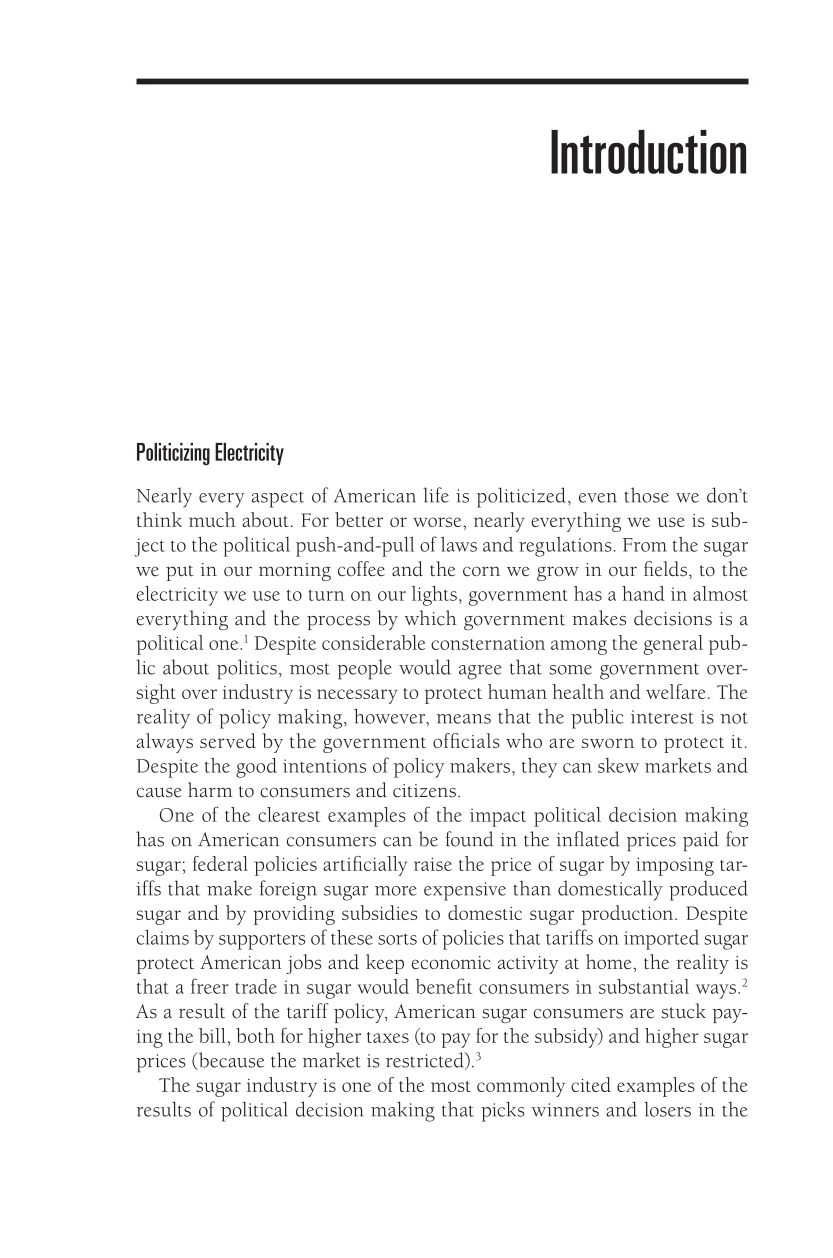Introduction
Politicizing Electricity
Nearly every aspect of American life is politicized, even those we don’t
think much about. For better or worse, nearly everything we use is sub-
ject to the political push-and-pull of laws and regulations. From the sugar
we put in our morning coffee and the corn we grow in our fields, to the
electricity we use to turn on our lights, government has a hand in almost
everything and the process by which government makes decisions is a
political one.1 Despite considerable consternation among the general pub-
lic about politics, most people would agree that some government over-
sight over industry is necessary to protect human health and welfare. The
reality of policy making, however, means that the public interest is not
always served by the government officials who are sworn to protect it.
Despite the good intentions of policy makers, they can skew markets and
cause harm to consumers and citizens.
One of the clearest examples of the impact political decision making
has on American consumers can be found in the inflated prices paid for
sugar; federal policies artificially raise the price of sugar by imposing tar-
iffs that make foreign sugar more expensive than domestically produced
sugar and by providing subsidies to domestic sugar production. Despite
claims by supporters of these sorts of policies that tariffs on imported sugar
protect American jobs and keep economic activity at home, the reality is
that a freer trade in sugar would benefit consumers in substantial ways.2
As a result of the tariff policy, American sugar consumers are stuck pay-
ing the bill, both for higher taxes (to pay for the subsidy) and higher sugar
prices (because the market is restricted).3
The sugar industry is one of the most commonly cited examples of the
results of political decision making that picks winners and losers in the

























































































































































































































